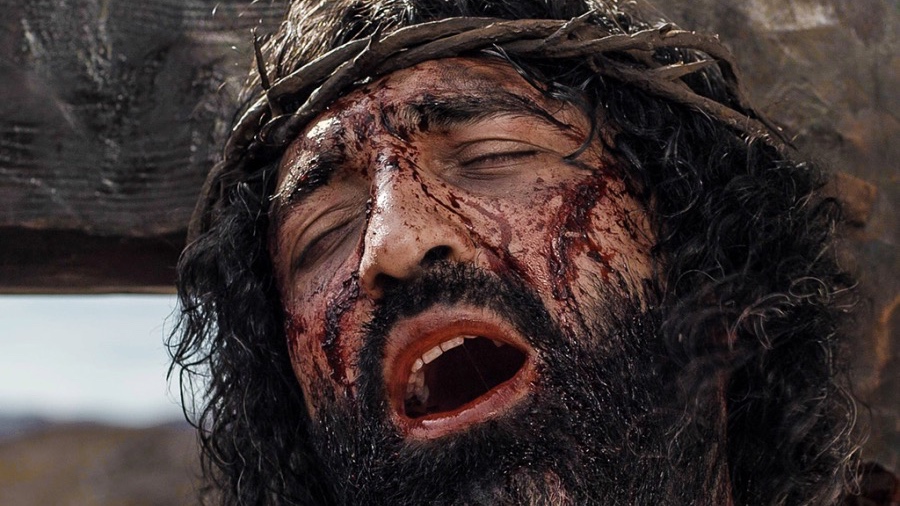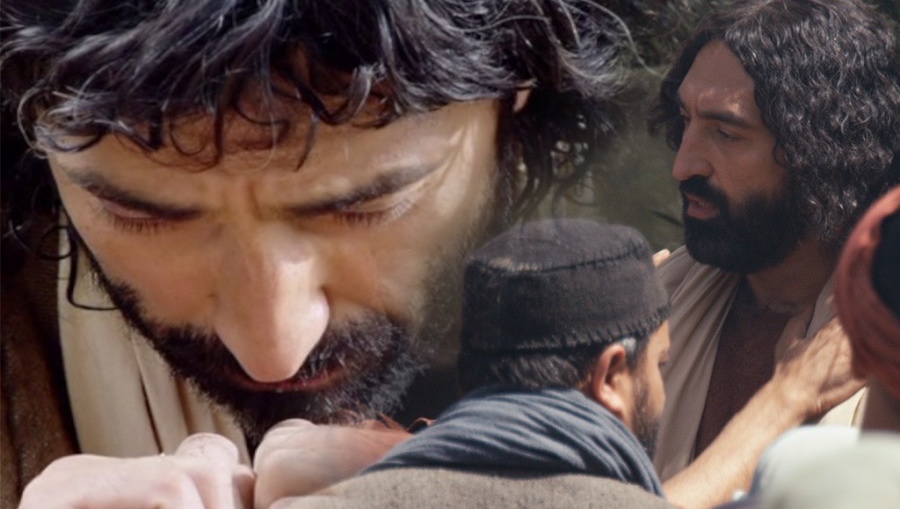Reality TV is the great and humbling reminder that many people will sell themselves for their ten minutes of fame. They will do almost anything to have a fleeting flicker of pseudo-significance because of their desire to be important, to be significant, to be known.
Before we feel too high and mighty, too above the folks prostituting themselves for fame, we need to ask ourselves an important question: What have I sold to gain acceptance? If we are honest, at some time or the other, most of us have sold our integrity, sobriety, character, virtue, virginity, fidelity, values, or morality for acceptance of some kind.

Each of us has a hunger, a hunger tied to our mortality. We want our passing shadow on the pages of time to matter, to mean something. We want to experience everything there is to experience. We want to make a difference in the lives of people who matter to us. We want to be known. In the vast sea of humanity and the endless march of time, we want our brief moment in history to matter. We strive for a moment of recognition, for some external validation that our lives are important. So, we will sell ourselves:
To drugs.
To food.
To work.
To sports.
To kids.
To alcohol.
To travel.
To fantasy.
To a big footprint on social media.
Into our self-seeking world, comes Jesus.
Jesus turns everything we know and mistakenly pursue, upside down. The more truthful way to say this is, "Jesus returns value back to right side up"! Mark calls this value, this lifestyle, the "way" of the cross — Jesus' lifestyle of sacrificial and ransoming service.
Jesus announces his death three times in the crucial central section of Mark's gospel. (For a more detailed explanation of this section, see the note at the end of this post.) Each announcement occurs right before the apostles reveal their total blindness to the "way" of Jesus. They are seeking power, prestige, and position. Jesus had each of these but gave them up to serve others.
- Power:
Peter's rebuke of Jesus (Mark 8:33) immediately follows his confession of Jesus as the Christ, the promised Messiah of God (Mark 8:29). Jesus predicts going to Jerusalem to be rejected and killed, something Peter couldn't imagine the powerful Messiah of God having to do (Mark 8:30-32). - Prestige:
The disciples argue over who is greatest among them (Mark 9:33-35) immediately after Jesus' second warning about his rejection and death awaiting him in Jerusalem (Mark 9:30-32). Rather than empathizing and affirming Jesus' future death, they are lost in their personal struggles for prestige. - Position: James and John request places of honor beside Jesus (Mark 10:36-38). Their pursuit of position makes them unreceptive to Jesus' third prediction of his rejection and death in Jerusalem (Mark 10:32-35).
In each of these encounters, the disciples demonstrate their blindness about Jesus' true greatness. At the end of these conflicts with their Lord, Jesus redefines for his disciples what significance truly is. He champions the "way" of the cross by clearly stating his mission:
For even the Son of Man [who is Jesus Christ] did not come to be served, but to serve, and to give his life as a ransom for many" (Mark 10:45).
While he has power, prestige, and position, he gives them up in self-emptying love to ransom sinners back to God.

If we want to have a life of significance, a life that matters, Jesus wants us to know we are going to have to follow him. We have to choose to live the "way" of the cross as the only way to lasting significance and life:
Then [Jesus] called the crowd to him along with his disciples and said:Whoever wants to be my disciple must deny themselves and take up their cross and follow me. For whoever wants to save their life will lose it, but whoever loses their life for me and for the gospel will save it. What good is it for someone to gain the whole world, yet forfeit their soul?(Mark 8:34-36)
More than simply trying to resist the reality TV culture's view of significance, Jesus calls us to follow him in the "way" of the cross! Jesus shows in his death and resurrection that this is the only kind of living that leads to more life and more significance, forever.
The early church sang a song about Jesus' self-emptying love. Paul quoted this hymn when he wrote the Philippians challenging them to live above their own self-seeking motives. This song is our invitation to follow Jesus in the way of the cross:
In your relationships with one another, have the same mindset as Christ Jesus:Who, being in very nature God,(Philippians 2:5-11).
did not consider equality with God something to be used to his own advantage;
rather, he made himself nothing
by taking the very nature of a servant,
being made in human likeness.
And being found in appearance as a man,
he humbled himself
by becoming obedient to death-even death on a cross!Therefore God exalted him to the highest place
and gave him the name that is above every name,
that at the name of Jesus every knee should bow,
in heaven and on earth and under the earth,
and every tongue acknowledge that Jesus Christ is Lord,
to the glory of God the Father.
Lauren Daigle sings a song that expresses this truth. It is entitled "Once and for All." I hope you are blessed by the words and the music calling us to follow Jesus in the "way" of the cross today:
Explanation of Mark's Central Discipleship Section (Mark 8:22-10:22):
Mark puts his gospel together so that we can see that true life is found in Jesus. Mark's story of Jesus hinges on two blind men. These two incidents with blind men frame the Lord's call for his disciples. Jesus calls his disciples to follow him in the way of the cross (Mark 8:34-38). The blind men and the material in between them make up Mark's central section on discipleship. Blind Man One:
[Jesus and his disciples] came to Bethsaida, and some people brought a blind man and begged Jesus to touch him. He took the blind man by the hand and led him outside the village. When he had spit on the man's eyes and put his hands on him, Jesus asked, "Do you see anything?"He looked up and said, "I see people; they look like trees walking around."
Once more Jesus put his hands on the man's eyes. Then his eyes were opened, his sight was restored, and he saw everything clearly. Jesus sent him home, saying, "Don't even go into the village." (Mark 8:22-26)
Weird! Why was this man not healed "immediately" of his blindness? Mark loves the word "immediately" — he uses the Greek word euthus ("immediately") over forty times in his gospel! Only Mark records this miracle, yet for the miracle to not happen "immediately" is not only noteworthy, but it also demands our attention. Mark wants us to ask:
- Why did this miracle take the second dose of Jesus' attention and power before the blind man "could see clearly"?
- Why the delay?
- What's the deal with "people... [that] look like trees walking around"?
If we look at the preceding context of this miracle, we get a clear indication of what Mark is trying to help us understand. The first blind man healing comes right after a time when Jesus repeatedly chastised his disciples for not seeing and not understanding because their hearts were hardened (Mark 8:17-21 Mark wants us to pay attention and not miss something. But, what? Ah, that brings us to blind and number two! Blind Man Two:
Then [Jesus and his disciples] came to Jericho. As Jesus and his disciples, together with a large crowd, were leaving the city, a blind man, Bartimaeus (which means "son of Timaeus"), was sitting by the roadside begging. When he heard that it was Jesus of Nazareth, he began to shout, "Jesus, Son of David, have mercy on me!"Many rebuked him and told him to be quiet, but he shouted all the more, "Son of David, have mercy on me!"
Jesus stopped and said, "Call him."
So they called to the blind man, "Cheer up! On your feet! He's calling you." Throwing his cloak aside, he jumped to his feet and came to Jesus. "What do you want me to do for you?" Jesus asked him.
The blind man said, "Rabbi, I want to see." "Go," said Jesus, "your faith has healed you." Immediately he received his sight and followed Jesus along the road. (Mark 10:46-52)
In so many ways, this healing is the opposite of the first blind man miracle. "Immediately he received his sight..." Mark points out. Rather than sending him away quietly, this man "followed Jesus"! Mark even goes to point out that he followed Jesus "in the way" (Mark 10:52 ESV). Not only was "the way" an early name for the first followers of Jesus (Acts 9:2; 22:4). In Mark, this phrase is also probably referring to Jesus' way of the cross that he will accomplish in Jerusalem. Two Hinges and What They Mean:
These two blind men, then, are the hinges on which the gospel of Mark turns. They help connect the whole story of Jesus by breaking the gospel into three parts:
- Jesus' Powerful Ministry (Mark 1:1-8:21).
Blind Man One (Mark 8:22-26).
- Jesus' Call for Us to Follow Him (Mark 8:22-10:45).
Blind Man Two (Mark 10:46-52).
- Jesus' Way to the Cross (Mark 11:1-16:8).
Jesus has power, position, and prestige — the things we pursue to achieve significance. Yet, Jesus gave these up, along with His life, to serve and to ransom the lost, to serve and to ransom us (Mark 10:45). Jesus also calls us to follow His example and to live his type of life.
Mark's point is that if we only have a powerful, "Mr. Fix-it-All-for-Us," Jesus, then we don't know or really understand the "way" of Jesus. If we only have a Jesus that does good stuff for us, makes sure we are valued by others, and gives us a cushy job and a nice life, then we are like the boneheaded loose lug nuts we call apostles chasing after power, prestige, and position. We need a second dose of healing like the first blind man. We need to hear the call of Jesus to follow him in the way of the cross (Mark 8:34-38).

Special thanks for the use of the Jesus images in Phil's blog, "The Jesus Window," to Free Bible Images and the The Lumo Project.





